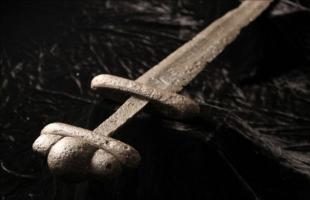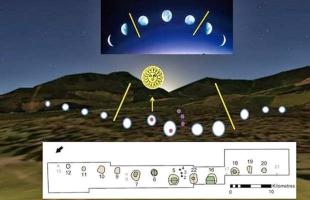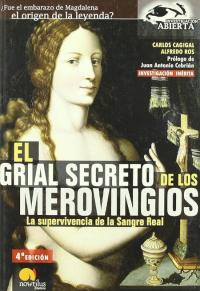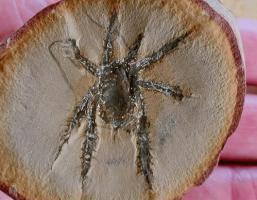Copy Link
Add to Bookmark
Report
Cider Digest #0934

Subject: Cider Digest #934, 30 November 2001
From: cider-request@talisman.com
Cider Digest #934 30 November 2001
Forum for Discussion of Cider Issues
Dick Dunn, Digest Janitor
Contents:
Cyser starter procedure (Andy Woods)
New Federal regulations (Marc Montefusco)
Food & Wine Nov 2001 (James.Luedtke@cgiusa.com)
Re: Cider Digest #933, 26 November 2001 ("Julian Temperley")
Re: Champagne yeast (Claude Jolicoeur)
Sweet Alford misnamed! (Andrew Lea)
Sharp cider ("Michael Tapscott")
Send ONLY articles for the digest to cider@talisman.com.
Use cider-request@talisman.com for subscribe/unsubscribe/admin requests.
When subscribing, please include your name and a good address in the
message body unless you're sure your mailer generates them.
Archives of the Digest are available at www.talisman.com/cider
----------------------------------------------------------------------
Subject: Cyser starter procedure
From: Andy Woods <camphillbrewco@yahoo.com>
Date: Tue, 27 Nov 2001 19:11:07 -0800 (PST)
Hey all,
Im about to make my first Cyser. Ive been a long
time brewer and finally decided to get into the
mead/cyser arena. Im about to make a apple cider
cyser and im looking to make a small starter to get
fermentation going.
My question is how should i make a proper starter
for my apple cider cyser. Im looking to make a small
half gallon starter. Ive was planning to use some
honey with boiled water to make a OG of 1.080, cool,
add some lemon juice for acid, yeast nutrient, and
pre-hydrated Lalvin 1118 yeast.
Any suggestions?? Also, are there any good sites for
explaining how to make cyser. I have a good idea, but
i rather not fly by the seat of my pants and see how
it
turns out in a few months.
Andy
woods_a@acadmn.mercer.edu
------------------------------
Subject: New Federal regulations
From: Marc Montefusco <mmontefusco@newworldcider.com>
Date: Wed, 28 Nov 2001 13:51:44 -0500
Fellow ciderists,
The new Federal regulations regarding the taxation and labeling of
commercial cider are available at:
http://www.access.gpo.gov/su_docs/aces/fr-cont.html
Look for the November 26 Federal Register, then look under Alcohol,
Tobacco, and Firearms. The regs are definitely worth a look, and many
of you may actually have contributed to their formulation. Any
comments?
Marc Montefusco
New World Cider
------------------------------
Subject: Food & Wine Nov 2001
From: James.Luedtke@cgiusa.com
Date: Wed, 28 Nov 2001 13:46:05 -0500
There is a nice article on cider by Frank Browning in the November issue of
Food & Wine. Titled "The Adventures of Cider Man", it concentrates on Farnum
Hill Ciders of New Hampshire. A short history of American cider is also
given. The article is available online at
http://www.foodandwine.com/invoke.cfm?objectID=F6EE9F06-B685-11D5-82720002B3
309983&method=display
------------------------------
Subject: Re: Cider Digest #933, 26 November 2001
From: "Julian Temperley" <somcb@globalnet.co.uk>
Date: Wed, 28 Nov 2001 21:05:26 -0000
With reference to the item about ageing cider. For the last eight years
we have been producing a bottle fermented cider, made like champagne, and
left on its yeast, and then disgorged by freezing the neck. I think that a
major change starts happening after a year. As the yeast starts to break
down the cider changes from a cider with co2 to a far superior product,
with less colour and more than a hint of champagne's biscuit flavours. In
the UK a very few cidermakers make cider by this method and as far as I
know nobody in France produces it this way. It is claimed in some quarters
that 'methode champaniose' was invented in England in 1660 and got to
France by 1718 , and has yet to find its way to Normandy. They have got so
far as fermenting in the bottle, but not ageing or disgorging. I think that
it is a very exciting way to produce cider, and an excellent way for the
craft producer to go Julian Temperley www.ciderbrandy.co.uk
------------------------------
Subject: Re: Champagne yeast
From: Claude Jolicoeur <cjoli@gmc.ulaval.ca>
Date: Wed, 28 Nov 2001 21:09:43 -0500
A 22:14 01.11.26 -0700, Shaun Shepherd wrote :
>Subject: Champagne Yeast
>From: Ciderist@aol.com
> Hi Everyone,
>I finally got round to reading several Digests that had built up in the last
>month or so. I saw repeated mention of the use of champagne yeast to make
>cider. I know some cider books recommend it but, in my humble opinion,
DO >NOT EVER USE CHAMPAGNE YEAST! etc...
This is an interesting comment, and quite surprizing for me. I have never
heard about Champagne yeast being not recommended for cider. I have been
making cider since 1988, between 3 and 10 batches a year. I use Champagne
yeast in about 80% of my ciders (one of the following: Lalvain 1118,
Redstar Champagne and Redstar Prise de mousse) and the other 20% is with
natural (wild) yeast. I must say I haven't tried anything else (maybe I
should). I have never found Champagne yeast to be too fast - I would
rather think the contrary, my ciders taking between 3 and 6 months to
ferment to dryness... Maybe this is because I have a cool room for
fermentation (10 to 12 C), or maybe there are other reasons that come
from the varieties of apples I grow, their chemical composition or
something that comes from the soil of my orchard. I have noticed that
juice from slightly underripe apples or from early season apples do
ferment much faster and I now try to avoid these as they produce harsher
cider. But I can surelly tell you that the cider I make, after more that
6 months fermentation in a glass carboy, followed by a year in bottles is
nowhere close to being harsh.
By the way, when browsing through the WWW pages of Scott Laboratories
(makers of Sparkolloid - http://www.scottlab.com/) I saw that they sell
yeast - they have a yeast chart that is quite informative in their site.
In particular, they mention the Lalvain DV 10, a newer Champagne strain
that seems interesting and is recommended for cider. Here is what they
say:
"DV10 was selected by the SOEC in the Champagne region and approved by
the CIVC in Epernay. This strain's fermentation kinetics
are strong over a wide temperature range and it has relatively low oxygen
and nitrogen demands. DV10 is famous for its ability to
ferment in conditions of low pH, high total SO2 and low temperature. It
is characterized by low foaming, low volatile acidity production,
and very low H2S or SO2 production. DV10 is one of the most widely used
strains in Champagne. This strain is known for clean
fermentations that respect varietal character while avoiding bitter
sensory contributions associated with many other strains. It is highly
recommended for premium white varietals and <bold>cider
production</bold>. DV10 can also be used to restart stuck fermentations
and has been known to ferment up to 18% alcohol."
Has anyone tried it?
Claude Jolicoeur
------------------------------
Subject: Sweet Alford misnamed!
From: Andrew Lea <andrew_lea@compuserve.com>
Date: Thu, 29 Nov 2001 20:05:00 +0000
I recently had some very interesting correspondence about the cider
variety Sweet Alford with Mike Ibbotson. With his permission it's
summarised below:
Mike began:
" I am a little confused about the cider variety Sweet Alford.
I thought I had a standard of it,but the fruit does not appear as it is
described in RR Williams book,and The Book of Apples.In the literature
it is described as small/ medium and greenish.My Sweet Alford apples are
medium/large and best described as straw colour with red colouring-it is
perfectly sweet with no acidity and little,if any astringency.
I have propagated a new standard from grafts,and before planting,thought
that I would check with Bulmers(where I obtain most of my trees) about the
fruit. Bulmers tell me that they do not sell Sweet Alford now as they
were not confident that the trees they were selling were Sweet Alford!!
I would be pleased if you have any information about this
variety-RR Williams recommended it to me as better than Sweet Coppin.
I have seen a variety named 'Alford' in the catalogues,and wonder
whether there has been some mix up."
My reply was as follows:
"When I got your note I thought 'but mine looks just like Mike's too'!
So at first light I went out to pick one and compare it with the books
(Book of Apples, Bulmers Pomona and Liz Copas' new 'Cider Apples of
Somerset'). You and I are both in the same boat - we are NOT growing
Sweet Alford. My fruit has a yellow ground but flushed up to 80% with
red, and very 'sheeps nose' in shape - not the globular yellow fruit
described and shown in the books.
Liz Copas has the answer it seems. Her book contains pictures and
descriptions of both Sweet Alford (which is nothing like mine) and Le Bret
(which is). Liz explains that at some time in the past at Long Ashton, the
varieties may have been mixed while propagating in the trial orchards, and
much of the SouthWest in the 70's (incuding much of the Taunton Cider company
orchards) was planted up with Le Bret but misnamed as Sweet Alford!
This explains it - and for over 10 years I've been growing it! My
planting stock came from Scott's at Merriott who had it as virus tested
LARS stock - but somewhere a switch was made. The name Le Bret sounds
very French - but it's not in the INRA Pommiers a Cidre - not surprising
since apparently it comes from a Mrs Le Bret who found the variety at
her home in a suburb of Bristol in the 1950's!
The odd thing is that my Le Bret, at least, just like the classic
description of Sweet Alford is
- - a pure sweet
- - very scab prone
- - very susceptible to magnesium deficiency on my high pH soil
Well I learned something from all this! I'm glad you asked or I'd never
have looked into it!!"
And I've recently been in touch with Liz Copas directly and she confirms
the story. So, anyone growing Sweet Alford, check it out!!
Andrew Lea
- ----------------------------------
Visit the Wittenham Hill Cider Page at
http://www.cider.org.uk OR
http://ourworld.compuserve.com/homepages/andrew_lea
------------------------------
Subject: Sharp cider
From: "Michael Tapscott" <brewdrinkstay@home.com>
Date: Thu, 29 Nov 2001 20:44:14 -0700
I'm mainly a beer brewer but have recently started making ciders. Maybe
I should say, trying to make ciders. They seem to come out very sharp
and more over extremely tart. What is causing this excessive tartness?
Any comments would be greatly appreciated.
Michael
brewdrinkstay@home.com
------------------------------
End of Cider Digest #934
*************************


























